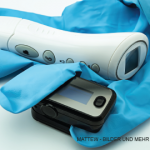Genetic Analysis
Analysis of one or more systemic autoinflammatory disease-related genes was performed by either complete gene screening of the most relevant exons or screening most likely point mutations in 159 patients (85.0%). In total, 15 patients carried likely pathogenic variants or variants of uncertain significance. Two had a genetic variant in the NLRP3 gene, seven in the MEFV gene, two in the MVK gene, four in the TNFRSF1A gene and one had a variant in the NOD2 gene. One patient presented with variants found in two genes: the p.R92Q variant of the TNFRSF1A gene and the p.V198M variant of the NLRP3 gene.
“Some families showing similar phenotypes were also included [in the analysis],” says Dr. Gattorno. “These families are interesting for their possible inclusion in genetic studies aimed at identifying new genes.”
The main message of the paper, according to Dr. Frenkel, is the recognition of the patients as a group. How specific symptoms and genetic traits can be used to identify patients with similar profiles across multiple centers. This finding should also aid in future research working to identify new autoinflammatory disease.
Study Limitations
Among the limitations cited by the authors, one is the retrospective nature of its design. They could not exclude a selection bias related to the possibility that more severe patients are being entered into the registry. For some patients, parts of the clinical presentation were missing and not retraceable. A lack of prospective follow-up information makes it difficult to give guidance regarding outcomes and long-term response in these patients.
Finally, the treatment response was hard to interpret. It was unknown how much change was related to the natural course of the disease or simultaneous use of other drugs. Researchers hope the establishment of a follow-up registry by the Eurofever work group may answer these questions in the future.
“A thorough family history may identify novel, genetic autoinflammatory syndromes currently hidden within a large, heterogeneous group,” he says. “Currently, no evidence-based therapy is available for [those with recurrent fevers]. From the data, it seems justified to assess common anti-inflammatory agents in a trial-and-error approach.”
Needed Research
Sangeeta Dileep Sule, MD, PhD, chief of the Division of Rheumatology at Children’s National Hospital, Washington, D.C., thinks this is a study that needed to be done.
“A large portion of the patients who come to our clinic with periodic fever syndrome present with a systemic autoimmune disease that doesn’t fit any of the [known] genetic diseases,” she says. “They aren’t given a named diagnosis, yet they have something that is systemic and without a genetic history. We [don’t] know how to treat or monitor them.”

